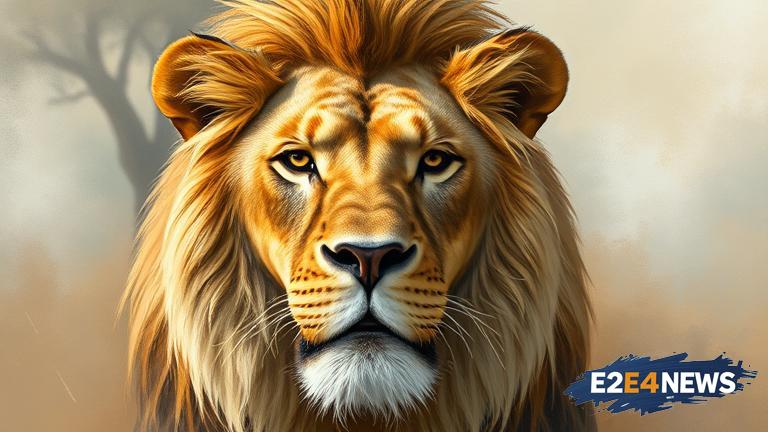The lion, named ‘Blondie’ due to its distinctive blonde mane, was a well-known and beloved figure in Zimbabwe’s Hwange National Park. For years, it had been the subject of study by experts from Oxford University, who were fascinated by its unique characteristics and behavior. However, on a recent hunting expedition, a group of trophy hunters shot and killed the lion, sparking outrage and sadness among those who had grown to admire and respect it. The incident has highlighted the ongoing controversy surrounding trophy hunting in Zimbabwe and other parts of Africa, with many arguing that it is a cruel and unnecessary practice that does more harm than good. Conservationists point out that lions like ‘Blondie’ play a vital role in maintaining the balance of their ecosystems, and that their loss can have far-reaching and devastating consequences. Furthermore, the killing of such a well-studied and iconic animal has also raised questions about the value and ethics of trophy hunting, with many calling for a complete ban on the practice. The Zimbabwean government has faced criticism for allowing trophy hunting to continue in the country, despite the fact that it is widely recognized as a major threat to lion populations. In recent years, the number of lions in Zimbabwe has been declining at an alarming rate, with many experts attributing this decline to the impact of trophy hunting. The killing of ‘Blondie’ has also sparked a wider debate about the relationship between humans and animals, with many arguing that we have a responsibility to protect and preserve iconic species like lions. As news of the lion’s death spread, social media was filled with messages of sadness and outrage, with many people expressing their disgust and disappointment at the actions of the trophy hunters. The incident has also highlighted the need for greater awareness and education about the importance of conservation and the impact of human activities on the natural world. In addition, it has sparked calls for greater protection and preservation of Africa’s lion populations, with many arguing that more needs to be done to prevent the decline of these majestic animals. The death of ‘Blondie’ is a tragic reminder of the ongoing threats faced by lions and other iconic species, and the need for urgent action to protect and preserve them. It is also a stark illustration of the clash between human interests and the needs of the natural world, and the need for a more sustainable and responsible approach to conservation. As the world mourns the loss of ‘Blondie’, it is clear that the impact of its death will be felt far beyond the borders of Zimbabwe, and will continue to resonate with people around the world who are passionate about conservation and animal welfare. The incident has also raised questions about the role of Oxford University and other academic institutions in studying and protecting iconic species like lions, and the need for greater collaboration and cooperation between conservationists, researchers, and governments to address the ongoing threats faced by these animals. Ultimately, the killing of ‘Blondie’ is a tragic reminder of the need for greater awareness, education, and action to protect and preserve the natural world, and the importance of working together to prevent the decline of iconic species like lions. The death of this legendary lion will not be forgotten, and will continue to inspire and motivate people around the world to take action to protect and preserve the beauty and wonder of the natural world. In the wake of this tragedy, it is clear that the world must come together to demand greater protection and preservation of Africa’s lion populations, and to prevent the senseless killing of iconic animals like ‘Blondie’. The legacy of this incredible lion will live on, and will continue to inspire and motivate people to take action to protect and preserve the natural world.
